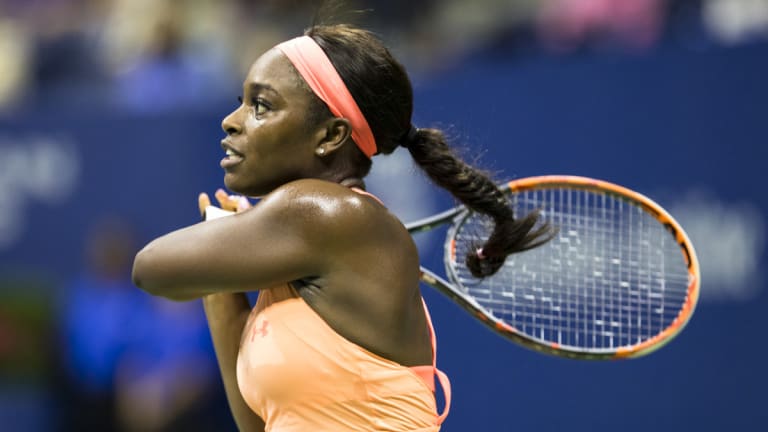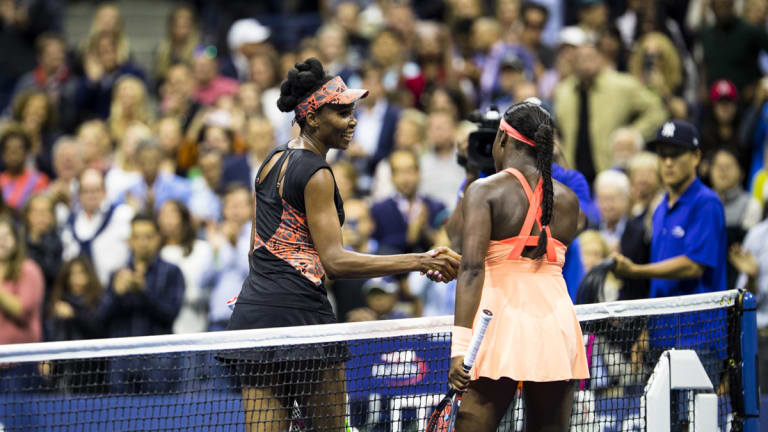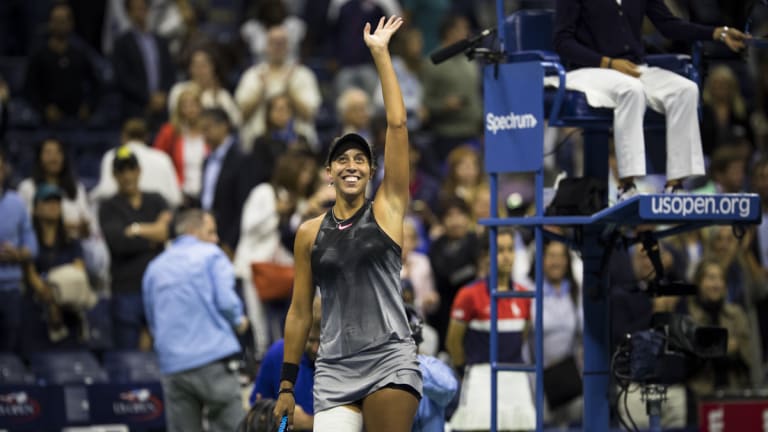NEW YORK—“For American tennis, there’s no question marks,” Sloane Stephens said with a grin on Thursday night at the US Open. For the first time in a long time, the statement was indisputable. Stephens, 24, had just finished beating Venus Williams in the evening’s first semifinal. An hour or so later, her friend Madison Keys, 22, would do the same to Coco Vandeweghe in the second semifinal. Suddenly, just like that, in the matter of a two-week span, the future of the U.S. women’s game had become the present.
For nearly a decade, tennis fans in this country had been marveling at the talent and potential of Stephens and Keys, hoping they would fulfill it, and occasionally wondering if our hopes were misplaced.
Yes, Sloane had an elegant game and was lightning fast. Yes, Madison had the easiest power some of us had ever seen. Yes, there were days when you would watch them pull off a ridiculously athletic move and we’d shake our heads and tell ourselves they were the real deal. And yes, when they made breakthrough runs to the semifinals at the Australian Open in 2013 and 2015, respectively, we made wild speculations about how many major titles they might win, or when they would crack the Top 10.
But as their rankings bounced up and down, and injuries stalled their progress, and neither of them reached another Grand Slam semi, the question marks remained. Did Sloane actually like tennis? Could Madison play two good sets in a row? Were they hitters, rather than players? Did they have the grit to win the close ones? In reaching their first major finals in the same night, Stephens and Keys answered all of those questions.
“I just don’t want anyone to ask me about the state of American tennis ever again!” a smiling Sloane said afterward.


